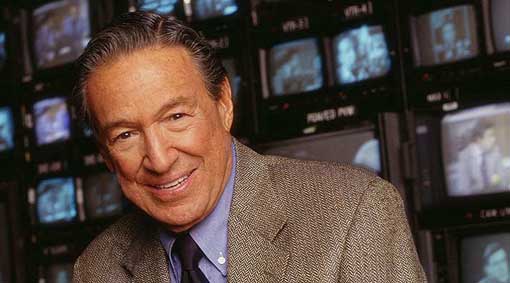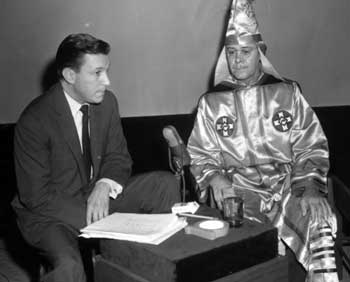
Back in 1978, in my early days of reporting, I was assigned a story about the 10th anniversary of 60 Minutes. CBS' revolutionary newsmagazine, the first of its kind, was then anchored by Mike Wallace, Morley Safer and Dan Rather. I interviewed them, as well as the show's executive producer, Don Hewitt.
I had watched 60 Minutes as long as it had been on the air and knew the reporters' styles well, so it was with some trepidation that this young reporter sat in Mike Wallace's Manhattan office waiting for our time together to begin. He was known as the show's no-nonsense pit bull, in his own words, wearing the black hat to his first 60 Minutes partner Harry Reasoner's (and later Morley Safer's) white hat. Dan Rather, he said, walked a line somewhere in between.
Wallace was late that day, tied up in a screening and meeting with the show's legal team over an episode scheduled to air that Sunday about the Ford Pinto and the tendency of the vehicle's gas tank to explode when involved in a rear-end collision.
His assistant wasn't sure when, or if, Wallace would be available, or how much time we'd have together. (Indeed, the interview was interrupted a number of times). Adding to my anxiety was my then husband's irritation that I was running late and would not be able to meet him at Penn Station to catch the train we planned to take home that evening. When Wallace finally arrived, he was cordial and gracious and apologized for being detained. I don't remember the details, but he somehow learned that my husband was perturbed, and sensing that I was upset, encouraged me to relax, assuring me that things would be fine.
This reporter will never forget that kindness or how generous Wallace was with his time, in spite of his pressing schedule, telling me "if you don't get through, stick around 'til later so you get it properly done."

Hearing of Wallace's death today saddened me, and took me back in time 34 years to when we spoke. For the first time since then, I re-listened to our interview.
Wallace, 60 at the time, told me that he had started working when he was 22, and in his 38 years in the business, the two jobs he liked best were the original Nightbeat (1956-57; see video below) and 60 Minutes. His wish was to keep working on the show, perhaps reducing his workload from 40 stories a year to 30, until he was 65, which at the time was CBS' mandatory retirement age. He ultimately stayed with the program through 2006, retiring at the age of 88.
Though his reporter persona was usually tough and tenacious, Wallace was also charming and forthcoming. It was a side of him the public rarely got to see, but which peeked through when he interviewed people he admired and enjoyed, such as Beverly Sills. His breed of reporting is rare today, and he will be missed.